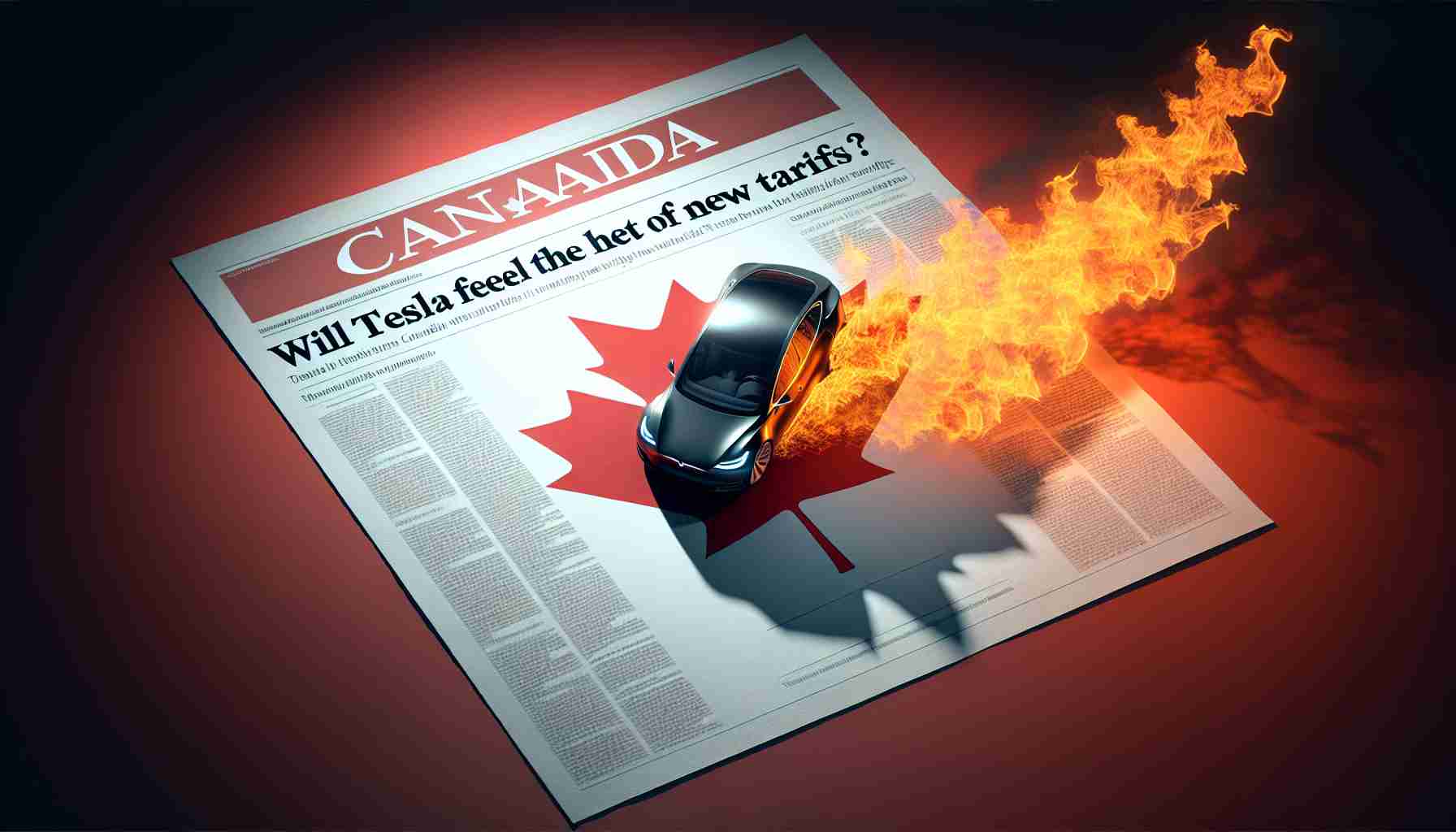- Chrystia Freeland advocates for a 100% tariff on select U.S. imports, primarily targeting Tesla vehicles.
- The move is a response to potential tariffs from President Trump on Canadian products, signaling escalating trade tensions.
- Freeland’s strategy aims to impact products associated with Trump supporters, potentially destabilizing Tesla’s market in Canada.
- With 17% of new cars in Canada being electric, this could encourage consumers to consider alternatives to Tesla.
- This situation presents a critical moment in the Canadian electric vehicle market, with potential consequences for Tesla’s sales and pricing.
- The increasing uncertainty in U.S. trade policies may offer Canada leverage to reshape its EV landscape.
In a twist that could shake the electric vehicle market, Canadian politician Chrystia Freeland is ready to turn the tables on Tesla. Drawing inspiration from the iconic motto, “Be nice until it’s time to not be nice,” Freeland is suggesting drastic measures against U.S. imports, specifically targeting Tesla, amidst escalating trade tensions.
During a cutting interview, Freeland, a candidate for the Liberal Party leadership, proposed imposing a staggering 100% tariff on select American goods, including Tesla vehicles, in retaliation to President Trump’s potential tariffs on Canadian and Mexican products. With Tesla’s ties to Trump’s administration making headlines, Freeland’s calculated response aims to hit back at those backing the tariffs.
She emphasized the need for a “surgical” approach, indicating that this move would specifically impact products linked to Trump supporters. This could send shockwaves through the Canadian EV market, compelling consumers to rethink their allegiance to Tesla, as prices could soar in the wake of tariffs.
As Canada rapidly embraces electric vehicles—nearly 17% of new cars sold are all-electric—Tesla’s dominance is at stake, especially with the Model Y and Model 3 leading the charge. However, Freeland’s strategy could sway buyers to explore alternatives if Tesla’s prices climb due to tariffs.
In the words of Freeland, Canada has the opportunity to leverage the uncertainty swirling around U.S. trade policies, signaling a decisive moment that could reshape the EV landscape for Tesla. The question remains: will Musk brace for impact? The stakes have never been higher, and Canadian consumers hold the power to decide.
Is Canada Set to Challenge Tesla’s Dominance in the EV Market?
The ongoing trade tensions between Canada and the United States could significantly impact the electric vehicle (EV) market, particularly for Tesla. Chrystia Freeland, a prominent Canadian politician and candidate for the Liberal Party leadership, is preparing to impose drastic measures, including a potential 100% tariff on Tesla vehicles. This bold move comes as a response to U.S. tariffs proposed under the Trump administration, indicating a new chapter in the evolving relationship between Canadian and U.S. automotive markets.
Current Market Trends and Insights
1. Electric Vehicle Adoption in Canada: As the demand for electric vehicles rises, roughly 17% of new vehicles sold in Canada are all-electric. This statistic highlights a growing acceptance of EVs among Canadian consumers, who are becoming increasingly wary of their reliance on importing vehicles from the U.S., especially amidst trade disputes.
2. Possible Alternatives to Tesla: In the face of rising tariffs, Canadian consumers might pivot towards domestic brands or manufacturers from countries not embroiled in the trade conflict. Brands like Lucid Motors, Rivian, and established players like Ford and GM, which have also entered the EV space, could see an influx of Canadian buyers.
3. Predictions for the Market: If tariffs are enacted, Tesla may experience a drop in sales otherwise affected by increased prices. This situation could open opportunities for other manufacturers, as well as stimulate interest in Canadian EV initiatives and manufacturers, such as Electra Meccanica and their unique offerings.
Key Questions About the Situation
1. What would the implications of a 100% tariff be on Tesla’s sales in Canada?
– Should the proposed tariffs be enacted, Tesla’s vehicle prices could double, leading to a significant drop in sales. Consumers might gravitate towards alternative options available in the market, reshaping the competitive landscape for electric vehicles in Canada.
2. How are Canadian consumers likely to respond to potential price increases?
– Canadian consumers are known for their adaptability and concern for domestic businesses. If Tesla’s prices skyrocket due to tariffs, many buyers may reconsider their purchases and evaluate other EV options, especially from Canadian manufacturers or other international brands not affected by the tariffs.
3. Could this change lead to a larger EV market shift?
– Yes, this situation has the potential to accelerate the transition in Canada towards more diversified EV options. Consumers might increasingly explore homegrown alternatives, driving innovation and potentially leading to more competitive pricing in the long run.
Conclusion
As the EV landscape evolves, Tesla must navigate the complexities of international trade relations. With Freeland’s proposed tariffs, Canada may emerge as a significant player in the EV market, challenging Tesla’s longstanding dominance. This scenario is a pivotal moment for both Canadian consumers and the electric vehicle industry.
For more insights into the electric vehicle market, visit Tesla and stay updated on the latest developments.


















